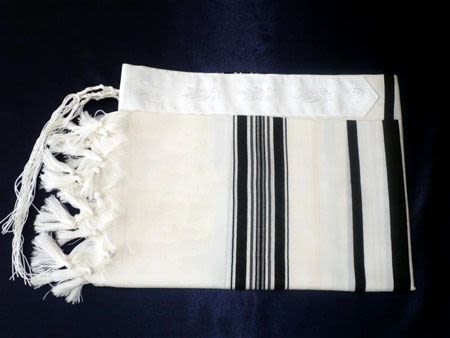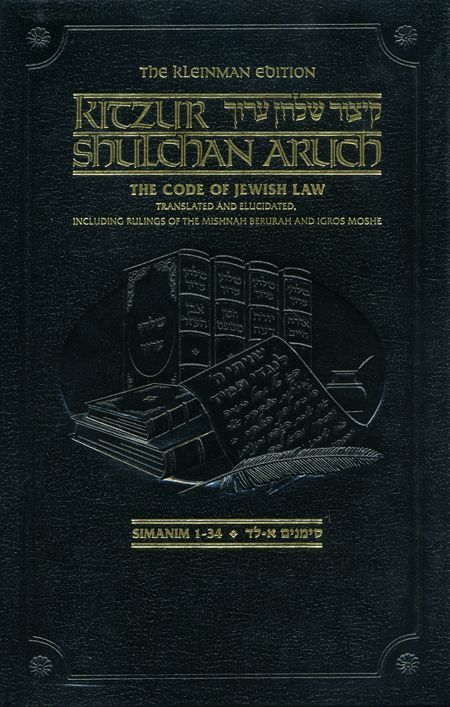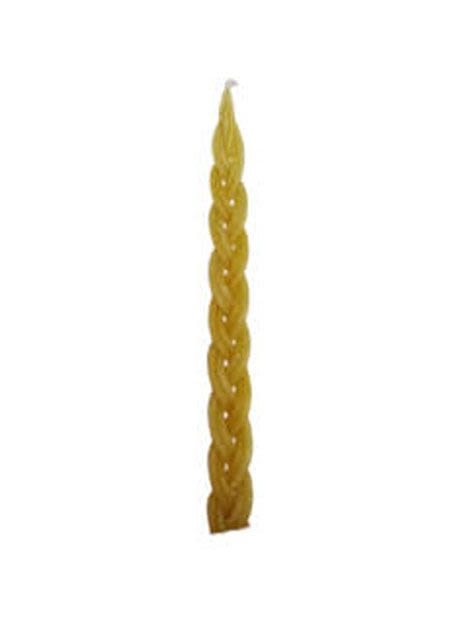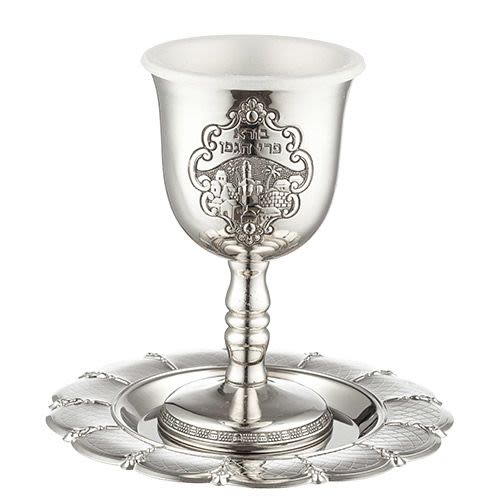
The Good Within the Bad
On a day when you are experiencing weakness and frustration, you must try, nevertheless, to acknowledge God’s presence. Use whatever strength...

Remaining Firm in All Situations
“On a good day, be good, and on a bad day, reflect…” (Kohelet 7:14).
Rebbe Nachman (Likutey Moharan I:33, 3) explains this verse as follows: “On a good day” – when everything is going well for you – then “be good” – use the goodness you have received for the purpose of serving God. Study Torah, pray, and perform the mitzvot in a way that expresses the spiritual light that is shining on you. But “on a bad day” – when you are on a low level, spiritually or physically – then “reflect” – think carefully to figure out what you can accomplish in such a situation.
On a day when you are experiencing weakness and frustration, you must try, nevertheless, to acknowledge God’s presence. Use whatever strength you have to perform some small act of goodness, even if seems insignificant. Guard yourself diligently to prevent your bad midot from gaining the upper hand. Be persistent and tenacious. Such conduct will mitigate any harsh judgments that might have been decreed upon you, and it will bring a Tikkun to the very source of your problems. In this way, you will reveal the light within the darkness, and you will rectify not only the particular situation, but your own soul as well.
The Book of Kohelet (Ecclesiastes) lists twenty-eight different time periods: “There is a time to be born, a time to die… a time to kill, a time to heal…” (Kohelet 3:1 -8). Half of the times listed are good, and half of them are bad. Similarly in a person’s life, there are “good days” and “bad days.” But we must believe that even our “bad days” are from God, and they are intended for our good.
By serving God even when we are on a low level, even when we are surrounded by difficulties, we accomplish something wonderful, something that could not be accomplished in any other way. The important thing is to pray to God, to plead with Him to be with us and to give us the strength to serve Him properly, even in such a low place. Thus it is written, “In Your hand are my times (i.e. the good times and the bad times), deliver me from the hand of my enemy, and from those who persecute me. Let Your Face shine upon Your servant; save me with Your loving-kindness” (Tehillim 31:16-17).
A Good Character Trait Can Save a Life
In the Gemara we find the following story. The Talmudic Sage and astrologer, Shmuel, was speaking with a non-Jewish astrologer named Avlet (Bava Metzia 85b). When a group of workers passed by on their way to cut reeds in a marsh, Avlet pointed to one of the workers. “I have seen it in the stars that he will not return alive, for a poisonous snake will bite him” (Shabbat 156b).
“If he is Jewish,” Shmuel told him, “he will return.” For Shmuel knew that the constellations have no power over Jews. God provides a Jew with many opportunities to do mitzvot, and one mitzvah would be enough to save his life, even if the starts clearly predicted that he would die.
That evening, when the workers returned with their bundles, the man who Avlet had said would die was among them, alive and well. Avlet was amazed. He and Shmuel went over to the man and opened his bundle of reeds. Inside they found a dead snake, which the man had unwittingly cut in half while harvesting the reeds. Indeed, his life had been in danger, but he had been saved.
“What did you do today to deserve such special protection?” Shmuel asked him. The man told him that each day the workers brought their own food from home. Then they would collect the food in a large basket, and everyone would share it. That day, the man noticed that one of the other workers did not bring anything from home. He realized that the worker would be embarrassed to eat without having contributed anything, and so he volunteered to collect the food that day. When he came to the poor worker, he only pretended to take food from him; instead, he put some of his own food in the basket. That way, the poor worker was able to eat without feeling ashamed. Shmuel told him, “It was in the merit of this mitzvah that your life was saved, as it is written: ‘Charity saves from death!’” (Mishlei 10:2).
This is a wonderful story that illustrates the power of mitzvot. But the question remains: Why did God send him this particular mitzvah to save him from the death that had been decreed for him? Why not another mitzvah, such as returning a lost object, or helping someone with their burden?
Perhaps the answer lies in another teaching of our Sages, that subjecting a person to public embarrassment is like murder (Ibid 58b). The Gemara also says, “It is better for a person to throw himself into a furnace than to embarrass another Jew in public” (Ibid 59a), and this has been explained as a specific application of the rule that a Jew must be willing to forfeit his own life to avoid the sin of murder (Tosefot on Sotah 10b, s.v. “Noach lo.” See also Iyun Yaakov on Ein Yaakov, loc.cit.). That is why God sent the man a mitzvah with which he was able to save another person from embarrassment. Since public embarrassment is a kind of death, the fitting reward was that God saved him from physical death.
The message here is that by showing kindness and concern to others, we can annul any harsh decrees that might be upon us. Every time we subdue the evil inclination within us, we also subdue the forces of accusation above. And when we help another person, we cause a great outflow of goodness and compassion to come down to us from heaven. On the same page of the Talmud, we find a similar story about Rabbi Akiva’s daughter. Astrologers had predicted that she would die on the day of her wedding. But during the wedding feast, she gave a plate of food to a poor beggar when everyone else was too busy to notice him, and as a result, she was miraculously saved. As in the previous story, not only did she alleviate his hunger, she also saved him from embarrassment. (In fact, this is true of every act of charity. It not only helps the poor person financially, but it also saves him from shame.) Afterwards, her father exclaimed: “Charity saves from death!” (Shabbat 156b).
A Bad Character Trait – A Shell which Conceals Goodness
Just as a “bad day” is given to us in order that we should reveal the goodness that exists within it, so too every spiritual affliction contains a spark of goodness, a kind of hidden treasure that can be revealed. Deeply hidden within every negative character trait, there is a positive trait. For a bad trait is like the shell or husk that covers a piece of fruit, and by transforming the bad trait, we will reveal the goodness that is present within it.
Rebbe Nachman taught that even in the trait of anger, for example, there is a spark of goodness, a potential that can awaken great mercy (Likutey Moharan I:18). The Talmud relates that Rav Yonatan once saw a chest filled with precious stones and pearls (Bava Basra 74a). That chest is an allusion to the trait of anger, says Rebbe Nachman; for hidden within anger is a precious treasure. The way to reveal the treasure is to control ourselves, even when someone is provoking us and we feel anger. If, at such a moment, we can suppress the urge to act with cruelty – if we can awaken a feeling of compassion for the person who is provoking us, and act in a merciful way – then God will bestow upon us the light of His own true and abundant compassion.
This Divine compassion will grant us a new awareness of the purpose for which we came into this world. We will perceive a distant glimmer of the light that true Tzaddikim enjoy, and we will sense a bit of the delight that they experience in the World to Come. Indeed, this is the greatest act of compassion that God can do for us: to remind us of why we are alive, so the precious years we have on this earth will not be forever wasted. And this spiritual treasure is hidden precisely within the negative trait of anger and resentment.
So too, beneath the surface of every bad character trait, there is a treasure of good traits. When we break the bad trait, the shell of negativity and concealment falls away, and then the goodness can be revealed in all its beauty and splendour.
Transforming Obstacles into Stepping-Stones
We must always remember that whatever happens to us, whether it is a result of our own actions or those of someone else, is an expression of God’s love, for His desire is always for our benefit. Even events that appear purely negative, events that seem to deprive us of important possibilities, can ultimately turn out to be invaluable opportunities for spiritual improvement. If we are worthy to use them correctly, the very difficulties that appear to impoverish us can be transformed into good ones, and all the troubles we experience will turn out to have been a preparation for receiving God’s blessing.
This is the secret of how to face life’s trials. True, when God tests us, there is a risk. If we are unable to withstand the test, we might fall, God forbid, to the very lowest levels. But when we pass the test, with God’s help, all the difficulties we experienced are transformed into a source of tremendous spiritual elevation. It is written: “…vehaElokim nisah es Avraham… – And God tested Avraham” (Bereishit 22:1). The words nisa (“tested”) and nisayon (“a trial” or “a test”) are both related to the word nes, “a banner” that is lifted up high. For whenever God tests us, it is in order to raise us to a higher spiritual level.
(Excerpt from The Scent of Gan Eden, by Rabbi Yaakov Meir Shechter, Keren Ohr Publications. Used with author’s permission.)














Tell us what you think!
Thank you for your comment!
It will be published after approval by the Editor.